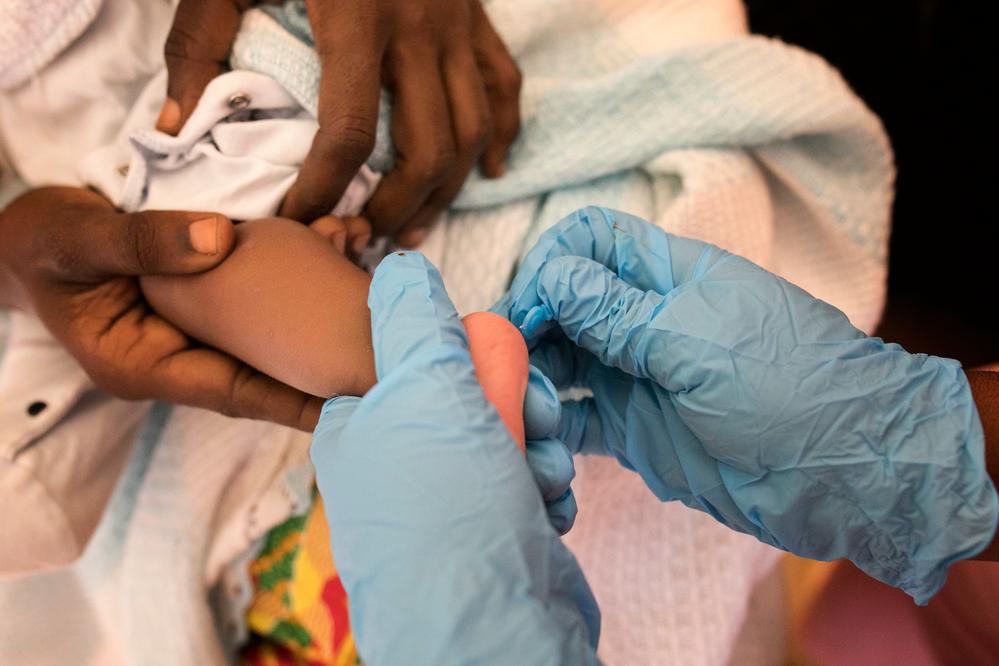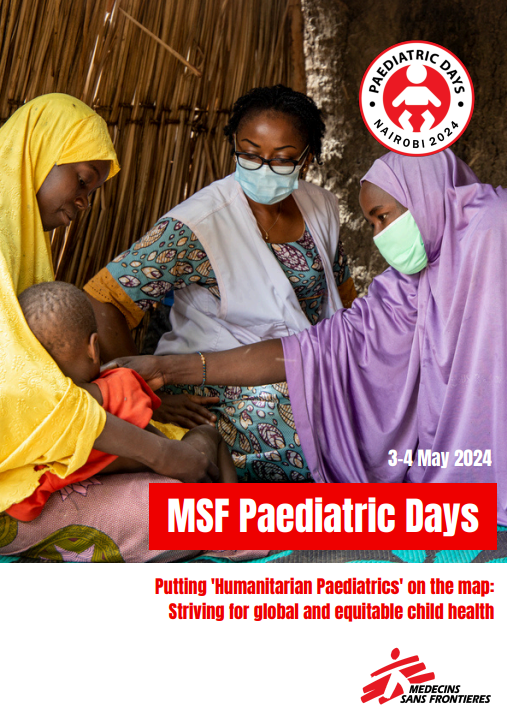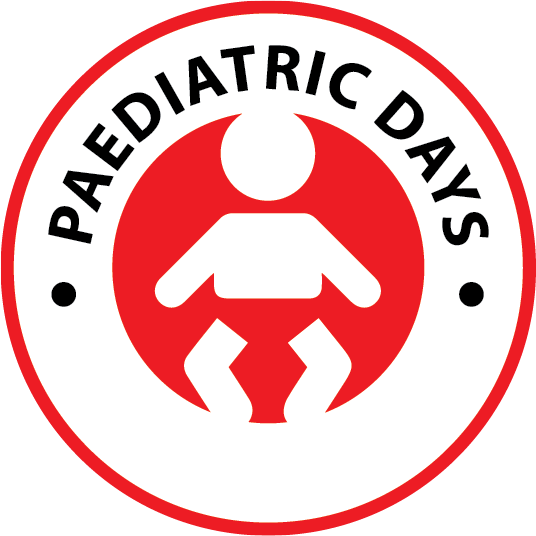
MSF PAEDIATRIC DAYS 6TH EDITION
3-4 May 2024 in Nairobi, Kenya and online
MSF PAEDIATRIC DAYS 6TH EDITION
3-4 May 2024 in Nairobi, Kenya and online
Key messages
The Médecins Sans Frontières (MSF) Paediatric Days 2024 took place on 3-4 May 2024 in Nairobi, Kenya.
The key messages are drawn from the meeting and they relate to MSF operations, MSF project activities and topics urgently requiring advocacy or further research, to improve quality and facilitate the delivery of paediatric care in humanitarian settings.
Read the key messages:
Key Messages: Paediatric HIV
Key Messages: Vaccination
Key Messages: Nutrition
Highlighted topics
Paediatric HIV
The battle against paediatric HIV still has a long way to go. Globally, half of all children with HIV are not receiving the antiretroviral therapy (ART) that they need. In West and Central Africa, where 25% of the global paediatric HIV burden is located, only one in five children is receiving this life-saving treatment. Lack of capacity to carry out early infant diagnosis as well as lack of access to ART are direct contributors. Despite significant increases in the prevention of mother-to-child transmission (PMTCT) in the past decade, universal coverage to eliminate newborn infections still falls short. These gaps are reflected in MSF projects where challenges exist with systematic patient testing in high-risk programmes, follow-up of HIV-exposed infants and their mothers, linkage of care with national services, lack of knowledge of paediatric HIV regimens among frontline staff and limited access to child-friendly ART formulations. This session aims to increase awareness of the latest recommendations for paediatric HIV testing and treatment, discuss barriers and potential solutions to implementation, address nutritional challenges in children with HIV, and learn how to create robust systems for preventing and monitoring paediatric HIV.
Vaccination and vaccine preventable diseases
Vaccination is a crucial life-saving intervention for children. However, since the COVID-19 pandemic there have been major setbacks in coverage levels, leading to worsening outbreaks of preventable diseases, specifically measles and diphtheria. There is an urgent need to scale up vaccination and retrieve the progress that was lost during the COVID-19 pandemic. There is also an outstanding agenda of including crucial vaccines, such as Pneumococcal conjugate vaccine (PCV), into routine vaccination schedules. PCV and rotavirus vaccines, among others, are yet to be introduced into high burden settings in many countries. Children bear the brunt of vaccine-preventable diseases, and healthcare workers who treat them play a powerful role in promoting the life-saving impact of vaccination, from diagnosis to outbreak response and advocacy. This session aims to highlight recent increases in epidemics of vaccine-preventable diseases, analyse potential new vaccination strategies and emergency response in humanitarian settings, leverage synergies between vaccination and nutrition, and debate the role of MSF in vaccination advocacy and catch-up vaccination campaigns.
Nutrition
Nutrition is a significant component of paediatric care and is pertinent to all aspects of child health. Unfortunately, vertical programming often isolates nutrition from paediatric care, resulting in missed opportunities and gaps. Integration of nutrition into paediatric programmes enhances the identification of children who are at risk of malnutrition and increases the likelihood of diagnosing potential underlying medical reasons for malnutrition. Additionally, there are several simple interventions to prevent malnutrition that are not universally implemented, such as allowing hospitalised mothers and babies to stay together to promote and facilitate breastfeeding, routine nutritional follow-up of newborns until 6 months of age, ensuring adequate home diet, and home-screening of mid-upper arm circumference (MUAC) by parents/carers. During the Paediatric Days, we will highlight the significance of nutrition in relation to each of the main sessions, present and discuss the latest malnutrition guidance and tools, and consider the main priorities in nutritional care for MSF.
Resources
Conference resources and presented abstracts are available on the MSF Science Portal.

The Agenda
